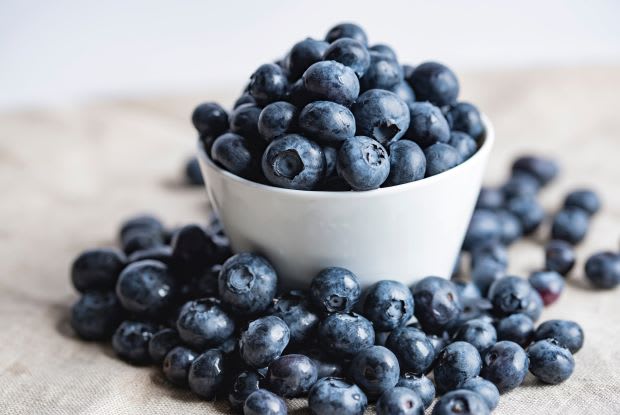Table of Contents
I. Why Do Acne Breakouts Occur?
II. Tips and Tricks to Avoid Breakouts
III. Improving Your Skincare Routine
IV. Exercise and Enjoying the Sun
V. Medical Treatment Options for Acne
Why Do Acne Breakouts Occur?
Acne is a skin condition typically characterized by breakouts of pimples, blackheads, or whiteheads. It is usually not serious but can become severe if inflammation occurs. Severe acne can cause scarring, so it is important to know how to prevent acne if you want to keep your skin healthy and smooth. [1]
Acne breakouts happen for many reasons, but the most common cause is a mixture of excess oil (sebum) and dirt or dead skin cells clogging up your pores. Acne breakouts may also occur due to a bacterial infection under the skin. If you are persistently bothered by acne, you may ask your doctor for prescription-strength acne medications such as Retin-A-Cream and azelaic acid.
If you want to avoid using topical acne creams and gels altogether, you can try taking steps to avoid an acne breakout from occurring in the first place. Preventative measures are especially important for those who have oilier skin. Read on for ways to improve acne-prone skin.
Here are some proven ways to improve your skin and prevent acne breakouts: Drink water: Acne breakouts are due to excess oil production and may occur because of hormone fluctuations in the body. Drinking enough water can help nourish your liver, which can directly help control your hormone levels. By having a healthy hormone balance, you can avoid excess sebum production and keep acne breakouts at bay. Generally, you’ll want to drink eight 8-ounce cups of water daily, but how much water you need can also increase or decrease based on your activity levels or health conditions. Ask your doctor about the right water intake level for you. [2] Keep showers to one per day: Although this tip may seem counterintuitive, it is important not to shower more than once every day. You may think that washing your skin as much as possible will keep it clean and oil-free, but the opposite can occur. Over-washing your skin can lead to skin irritation and inflammation, which can lead to more acne breakouts. [2] Keep your hands off your face: Keeping your hands off affected areas on your skin can go a long way when it comes to breakout prevention. Touching your skin with your hands spreads bacteria and breaks the seal of your pores. This means the bacteria will then be able to enter your pores easily, leading to infections. Often, this is how blackheads and whiteheads turn into more serious papules, nodes, and cysts. [2] If you wear makeup, wash it off: It is okay to wear makeup, but make sure you wash it off before you go to sleep to allow your skin to breathe. By cleaning your skin for the night, you can reduce the risk of blocked pores and acne breakouts. A gentle, pH-neutral soap will usually do the trick. [2] Eat more antioxidants: Antioxidants have anti-inflammatory properties, which can prevent painful and inflamed pimples from breaking out. Try to incorporate foods like blueberries, avocados, kidney beans, and almonds into your diet. For more anti-inflammatory foods, talk to your dietician. [2] In addition to these tips, it is important to maintain good hygiene and have an effective skincare routine. Like we mentioned before, over-washing can cause more harm than good, so it’s crucial that your skincare routine involves light exfoliating. Even when you lightly exfoliate, exfoliating too often can cause problems. Avoid harsh exfoliants, washing your face too often, and scrubbing too hard. [3] When you are choosing skin care products, ensure every product you are applying to acne-affected areas is non-comedogenic. This term means that the product is oil-free and will not clog your pores. [3] A good skincare routine will typically include the following: Our bodies require sunshine to synthesize vitamin D and strengthen our bones. Another benefit of sunshine is that it can dry out the sebum and help keep skin healthy. However, it is important to avoid excessive exposure to the sun because too much sun can cause blocked pores and dry skin. Aim to get 15 minutes of sun exposure a day and remember to apply UVA and UVB sun protection whenever you have to be outside for longer periods. Finally, avoid tanning beds because they can emit high levels of UV rays and be incredibly damaging to your skin. [2] There are many medical treatment options for acne. For example, retinoic acid is available as Retin-A-Cream or Retin-A-Gel on Canada Med Pharmacy. Talk to your doctor today to find out which acne treatment plan is suitable for you. The content in this article is intended for informational purposes only. This website does not provide medical advice. In all circumstances, you should always seek the advice of your physician and/or other qualified health professionals(s) for drug, medical condition, or treatment advice. The content provided on this website is not a substitute for professional medical advice, diagnosis, or treatment.
Tips and Tricks to Avoid Breakouts

Improving Your Skincare Routine
Exercise and Enjoying the Sun

Medical Treatment Options for Acne
